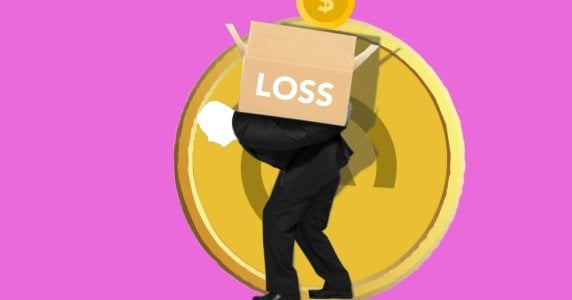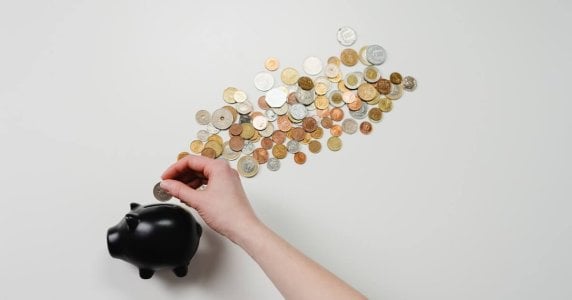Do your friends owe you money? You're not alone – One in four Australians are in the same boat!
- Replies 10
It's not always easy to ask those closest to us to return the money they borrowed. After all, they are our friends, and we don't want friction between us.
Unfortunately, though, ‘freeloaders’ are everywhere.
If you’re still waiting for a friend to pay you back – you’re not alone, according to research by comparison website Finder.
Let’s be honest. Sometimes friendship and money don’t mix - especially when one of you forgets to pay the other back!
New research by Finder confirms this, with one in four Aussies claiming to be owed money by a friend. That’s 4.8 million people!
So, in which categories are Aussies going unpaid? The research reveals that gifts (6 per cent), splitting a bill at a restaurant (6 per cent) or buying event tickets (6 per cent) are the most common debts.
Sharing a taxi or Uber (5 per cent), travel expenses (4 per cent) and even gambling (3 per cent) were other common reasons for debt.
Finder money expert Sarah Megginson said Australia could be a ‘nation of freeloaders’.
She said: ‘Our research reveals that millions of Aussies have borrowed money from their friends with no intention of paying them back. Not repaying money breaks trust and can put a strain on the relationship, but it could also cause financial problems for the friend left shouldering the debt.’
Finder’s research also shows that the majority of Aussies (62 per cent) haven’t lent money to a friend. Men (43 per cent) are more likely to be left out of pocket by their friends than women (33 per cent).
Money is a sensitive subject and should be handled with care within a relationship. Financial stress can also often lead to disputes and can often lead to relationship issues.
In fact, financial stress is the number one cause of relationship breakdown, according to Relationship Australia research. This data encompasses everyone, not just married couples. This is why it’s important to set clear expectations and to communicate often to ensure that everyone is on the same page.
But never fear! Megginson suggests some steps to take to get back the money you’re owed.
‘Your first port of call should be to ask your friend to pay you back. It can be a bit uncomfortable bringing up the topic of money, but if you don’t ask and then you’re resentful, then that can be more damaging to the friendship long-term,’ Ms Megginson explained.
She continued: ‘Then, don't cover for them in the future. You might have to re-set boundaries with some people, and a clear conversation is the best place to start.’
Take it one step further, and if you’re owed a significant amount, you can consider other actions such as sending a letter of demand, clearly outlining how much you are owed and when it needs to be repaid or finding a resolution through your state or territory’s tribunal.
‘If you receive no response, you can lodge a claim with your state or territory’s tribunal for resolving matters like this,’ she stated.
Ms Megginson also issued a warning: Exercise extreme discretion when lending money - especially as the cost-of-living crisis puts more people under financial stress.
‘Keep in mind that emergency funds are not intended to be drained by your mates,’ she said.
This comes after data from the Australian Bureau of Statistics (ABS) revealed that the cost of living would continue to rise throughout 2023. Employee households – people whose primary source of income is their wages – experienced a 9.3 per cent rise in living costs over the past year. This is the highest annual increase in living expenses since 1987. You can read the full report here.
 So, has a friend failed or forgotten to pay you back in the past? Tell us all about it in the comments section below!
So, has a friend failed or forgotten to pay you back in the past? Tell us all about it in the comments section below!
Unfortunately, though, ‘freeloaders’ are everywhere.
If you’re still waiting for a friend to pay you back – you’re not alone, according to research by comparison website Finder.
Let’s be honest. Sometimes friendship and money don’t mix - especially when one of you forgets to pay the other back!
New research by Finder confirms this, with one in four Aussies claiming to be owed money by a friend. That’s 4.8 million people!
So, in which categories are Aussies going unpaid? The research reveals that gifts (6 per cent), splitting a bill at a restaurant (6 per cent) or buying event tickets (6 per cent) are the most common debts.
Sharing a taxi or Uber (5 per cent), travel expenses (4 per cent) and even gambling (3 per cent) were other common reasons for debt.
Finder money expert Sarah Megginson said Australia could be a ‘nation of freeloaders’.
She said: ‘Our research reveals that millions of Aussies have borrowed money from their friends with no intention of paying them back. Not repaying money breaks trust and can put a strain on the relationship, but it could also cause financial problems for the friend left shouldering the debt.’
Finder’s research also shows that the majority of Aussies (62 per cent) haven’t lent money to a friend. Men (43 per cent) are more likely to be left out of pocket by their friends than women (33 per cent).
Money is a sensitive subject and should be handled with care within a relationship. Financial stress can also often lead to disputes and can often lead to relationship issues.
In fact, financial stress is the number one cause of relationship breakdown, according to Relationship Australia research. This data encompasses everyone, not just married couples. This is why it’s important to set clear expectations and to communicate often to ensure that everyone is on the same page.
But never fear! Megginson suggests some steps to take to get back the money you’re owed.
‘Your first port of call should be to ask your friend to pay you back. It can be a bit uncomfortable bringing up the topic of money, but if you don’t ask and then you’re resentful, then that can be more damaging to the friendship long-term,’ Ms Megginson explained.
She continued: ‘Then, don't cover for them in the future. You might have to re-set boundaries with some people, and a clear conversation is the best place to start.’
Take it one step further, and if you’re owed a significant amount, you can consider other actions such as sending a letter of demand, clearly outlining how much you are owed and when it needs to be repaid or finding a resolution through your state or territory’s tribunal.
‘If you receive no response, you can lodge a claim with your state or territory’s tribunal for resolving matters like this,’ she stated.
Ms Megginson also issued a warning: Exercise extreme discretion when lending money - especially as the cost-of-living crisis puts more people under financial stress.
‘Keep in mind that emergency funds are not intended to be drained by your mates,’ she said.
This comes after data from the Australian Bureau of Statistics (ABS) revealed that the cost of living would continue to rise throughout 2023. Employee households – people whose primary source of income is their wages – experienced a 9.3 per cent rise in living costs over the past year. This is the highest annual increase in living expenses since 1987. You can read the full report here.
Key Takeaways
- A Finder survey revealed that one in four Aussies (24 per cent) are owed money by a friend.
- The most common unpaid debts include gifts, splitting restaurant bills, and event tickets.
- According to the research, 62 per cent of Aussies haven't lent money to a friend, while 14 per cent say their friends always pay them back.
- Men (43 per cent) are more likely to be left out of pocket by their friends than women (33 per cent).









